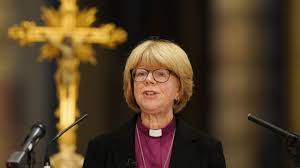The Church of England has broken a 1,400-year-old tradition by appointing Sarah Mullally as the first female Archbishop of Canterbury. The 63-year-old former nurse will take over from Justin Welby, who resigned following criticism over his handling of child abuse scandals.
Mullally will now serve as the ceremonial head of the Anglican Communion, which brings together more than 85 million members worldwide. Her appointment, however, has exposed long-standing divisions between liberal churches in the West and conservative Anglican communities in Africa and Asia.
In Britain, many religious leaders and faith communities welcomed the historic appointment. Mullally herself pledged to focus on restoring trust after years of abuse scandals and safeguarding failures. She also spoke out against rising antisemitism, condemning the recent deadly attack on a Manchester synagogue.
Yet not all Anglicans celebrated the decision. Laurent Mbanda, Archbishop of Rwanda and chair of a global group of conservative Anglican churches, argued that Mullally would not be able to unite the Communion. Others, such as Nigerian church leader Funkuro Godrules Victor Amgbare, openly rejected the reforms that allowed women to be appointed bishops, saying, “From creation God has never handed over the position of leadership to woman.”
The debate reflects broader tensions within the global church—especially over women’s leadership and the acceptance of same-sex couples. While reforms introduced over a decade ago paved the way for women bishops in England, many African and Asian churches still refuse to recognize them.
In her first address, Mullally acknowledged the challenges ahead, describing society as “craving certainty and tribalism” while struggling with difficult questions around migration and community divisions. She stressed that her faith remains her source of hope in a world that often feels “on the brink.”
Her appointment marks a turning point for one of Britain’s oldest institutions, opening a new chapter in Anglican history while testing the unity of the worldwide Communion.

